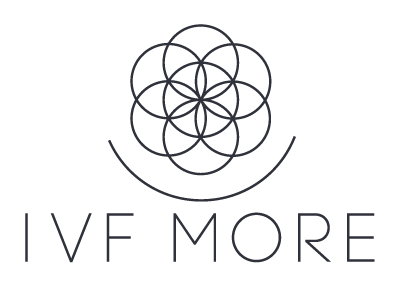Egg Donor Requirements & How to Improve Your Own Egg Quality
June 2025

Egg donation is a generous act that allows many people to fulfill their dream of having a baby. However, more and more women are asking themselves if they truly need to resort to donor eggs or if it’s possible to improve the quality of their own eggs in order to get pregnant. Thanks to advances in regenerative medicine, there is now a real alternative: ovarian restoration.
In this blog, we’ll explain the requirements to become an egg donor, how to improve the quality of your own eggs, and why ovarian restoration through IVF MORE® may be a better option for many women.
Why Consider Egg Restoration Instead of Egg Donation?
Egg donation is often presented as the last resort for women who haven’t been able to get pregnant due to poor egg quality. However, many young women or those with complex diagnoses prefer to preserve their genetic material and look for another option.
Ovarian restoration offers a revolutionary possibility: improving the quality of your own eggs to avoid using donor eggs. Unlike the donation process, which involves giving your eggs to someone else, restoration is focused on optimizing your own fertility.
How to Improve Egg Quality Without Donor Eggs?
While egg donation remains a valuable option for many, a growing number of women are now focusing on enhancing their fertility potential before considering donor eggs. It’s possible to improve your chances of pregnancy using your own eggs thanks to the following:
- A healthy lifestyle (diet, exercise, avoiding alcohol and tobacco).
- Antioxidant and hormonal treatments under medical supervision.
- And especially, restoration techniques like those at IVF MORE®, which use regenerative medicine, metabolic diagnostics, and embryo culture in a magnetic field to regenerate eggs and enhance their potential.
Improving egg quality takes time and consistency, but it can be a game-changer for women who want to preserve their genetic connection. At IVF MORE®, we’ve seen firsthand how egg restoration can breathe new hope into cases that once seemed hopeless. Our advanced evaluations and targeted treatments can help provide a clear answer.
Understanding the Egg Donation Process
Egg donation is a well-established process that has helped countless individuals and couples build families when other fertility treatments haven’t worked. Knowing the requirements to become an egg donor and how to donate eggs is essential. It involves a carefully managed series of medical steps that allow a donor’s eggs to be retrieved, fertilized, and transferred to a recipient’s uterus through IVF.
The process to become an egg donor begins with the donor undergoing ovarian stimulation, where fertility medications are used to encourage the development of multiple eggs. Throughout the egg donation cycle, the egg donor is monitored closely through ultrasounds and blood tests. Once the eggs are ready, they are collected in a minor outpatient procedure.
After retrieval, the eggs are either fertilized with sperm and transferred to the recipient or frozen for future use. This donation can happen anonymously through an egg bank or in direct coordination with a recipient. The entire process, from how to become an egg donor to how to donate eggs, is regulated and supported by professionals to ensure the egg donors’ and recipients’ safety and well-being.
Who Can Become an Egg Donor?
To become an egg donor, it’s not just about meeting requirements. Egg donors must understand that the decision to become an egg donor comes with emotional, physical, and ethical responsibilities as well. Women who wish to become egg donors must meet specific medical and psychological criteria to ensure they are healthy and fully informed about the process.
Most fertility clinics in the United States require egg donors to be between 18 and 32 years old, with a healthy BMI. Also, to become an egg donor, there must be no history of smoking or drug use. A strong ovarian reserve and regular menstrual cycles are essential for becoming an egg donor. The screening process for egg donors is comprehensive, including genetic testing, infectious disease screening, and a psychological evaluation to ensure the egg donor is prepared for the emotional implications of the donation.
Only a small percentage of applicants actually pass the full screening process. For those who do, the ability to help another family grow can be incredibly rewarding.
Why Women Choose to Donate Eggs
Women choose to donate eggs for a variety of reasons. Some are motivated by the opportunity to help couples struggling with infertility. Others see it as a way to give back, especially if they’ve witnessed someone close to them battle infertility.
Financial compensation is also a factor. Egg donors are typically compensated for their time, effort, and medical procedures. However, most egg donors report that the emotional reward—knowing they’ve made a difference—is the most meaningful part of the experience.
Regardless of motivation, donating is deeply personal and often made with great care. That’s why education, support, and ethical oversight are all essential parts of the egg donation process.
Egg Donor Requirements vs. Ideal Conditions for Egg Restoration
While both egg donation and egg restoration involve fertility-focused care, the qualifications for each pathway are quite different. Understanding these differences can help women determine which option is more aligned with their personal health, values, and goals.
Age & Fertility Health
Age is one of the most important fertility factors, and it plays a central role in determining eligibility for egg donation and restoration. While both paths involve using eggs to achieve pregnancy, the biological requirements are very different. To donate eggs, women must:
- Be between 18 and 32 years old.
- Have regular menstrual cycles.
- Have good ovarian reserve.
These age guidelines help maximize the chances of successful fertilization and implantation for the egg recipient. Because donor eggs are used to create an embryo for someone else, maintaining high biological standards is essential throughout the egg donation process.
The requirements for women considering egg restoration instead of donation are more flexible. While there are still biological limits, the main condition is that the patient has at least a small number of viable eggs to work with. Most candidates for ovarian restoration:
- Have their own eggs, even if only a few.
- Are under 50 years old but will require a personalized evaluation.
Unlike donation, egg restoration is designed for women who want to improve the quality of their own eggs—not meet rigid egg donor standards. This approach gives more women, even those with diminished ovarian reserve or advanced maternal age, a renewed opportunity to conceive using their own genetic material.
Physical & Reproductive Wellness
Physical and reproductive health are critical factors in determining a woman’s suitability for egg donation or egg restoration. While both paths aim to support fertility, the qualifications reflect different priorities and end goals.
- Egg Donors: Must be free from infectious and genetic diseases and have a healthy body mass index (BMI).
- Restoration: Women with conditions like PCOS, endometriosis, or low ovarian reserve may also be candidates. The approach is tailored to each case.
Egg donation requires optimal reproductive health to ensure the best possible outcome for the recipient. In contrast, egg restoration welcomes women with certain reproductive conditions and works to improve the function of their existing eggs. The focus isn’t on perfection—it’s on potential.
BMI & Lifestyle Factors
Body mass index (BMI) and lifestyle choices play significant roles in both fertility treatment options. However, the standards and expectations for egg donors and restoration candidates vary considerably.
- Egg Donors: BMI must be between 18 and 28, and substance use is not allowed.
- Restoration: While a healthy lifestyle is encouraged, it’s not an exclusion criterion if an overall wellness plan is in place.
Because egg donors are contributing to someone else’s fertility journey, clinics enforce stricter standards for weight and lifestyle to minimize risks. Conversely, restoration is a deeply personal process, and IVF MORE® focuses on working with the body to improve overall health rather than disqualify patients outright.
Non-Smoker & Drug-Free Lifestyle
In both cases, it’s expected that the donors and patients are non-smokers and don’t use drugs, or consume excessive alcohol to ensure a safe and successful process. These habits can negatively impact hormone levels, egg quality, and overall reproductive health, making lifestyle choices an essential part of both donation and restoration.
Medical & Psychological Considerations
Both egg donation and egg restoration involve more than just physical readiness—they also require emotional preparation and psychological support. Fertility is a complex, personal journey, and understanding the mental health aspect is crucial for success.
- Egg Donors: Undergo medical and psychological evaluations to ensure they are prepared to donate.
- Restoration: IVF MORE® provides emotional and psychological support throughout the fertility restoration journey.
Egg donors are carefully screened to ensure they understand the implications of their choice and are emotionally stable enough to proceed. Meanwhile, women pursuing restoration receive guidance and counseling as they work through the emotional layers of infertility, hope, and healing. Both paths benefit from comprehensive support.
Good Reproductive Health & Egg Reserve
Ovarian reserve—meaning the quantity and quality of a woman’s eggs—is a major determinant in fertility treatment eligibility. But how it’s used in egg donation vs. restoration tells two very different stories.
- Egg Donors: Must have a high ovarian reserve.
- Restoration: Can work even with very low reserve, as long as at least one egg can be produced to begin the process.
Egg donors are expected to produce multiple healthy eggs in one cycle, which requires a strong ovarian reserve. However, even a small reserve is enough for restoration candidates to begin treatment. The emphasis shifts from quantity to quality, offering hope to women who’ve been told they’re “out of time.”
Legal and Ethical Considerations
Legal and ethical concerns often come into play when reproductive choices involve more than one person. The responsibilities and implications of each treatment option differ, particularly when a third-party donor is involved.
- Egg Donors: Requires legal consent and, in many countries, legal assessments.
- Restoration: Is a personal decision with no additional legal implications, as the process involves your own eggs.
Egg donation carries legal requirements to protect both the donor and recipient, particularly when agreements involve anonymity or future contact. In contrast, restoration is a solo journey—rooted in personal autonomy and free of third-party legal entanglements. For many women, this added control is one of the most appealing aspects of restoring their own fertility.
How IVF MORE Enhances Egg Quality Using Advanced Techniques
IVF MORE® combines cutting-edge technologies with regenerative science. These are the main stages:
- Metabolic Diagnosis: Each egg is evaluated for cellular health and energy.
- Regenerative Medicine Restoration: Infusion of biochemical factors derived from your own cells.
- Advanced Fertilization (PICSI): Selection of higher-quality sperm.
- Magnetic Field Culture: Improves embryo cell division.
- Endometrial Preparation: Using PRP and other regenerative techniques.
Thanks to this, many women achieve pregnancy with their own eggs after several failed traditional IVF attempts. At IVF MORE®, we believe that every woman deserves the chance to explore every possible option—including the ability to conceive with her own eggs. Egg restoration isn’t just a procedure; it’s a reclaiming of hope, autonomy, and the belief that your fertility story doesn’t have to follow someone else’s script.
Start Your Egg Restoration Journey with IVF MORE®
If you’ve considered egg donation as your last option, now you know there is a real alternative. IVF MORE® gives you the chance to try for a pregnancy with your own eggs—even if you have low ovarian reserve, PCOS, or endometriosis.
Our team will evaluate your case personally and guide you through every stage. Preserving your fertility and restoring egg quality are no longer opposing goals—they’re part of the same path toward your dream.
Contact us today to discover how we can help you achieve the pregnancy you’ve longed for—without giving up your own genetic identity.
